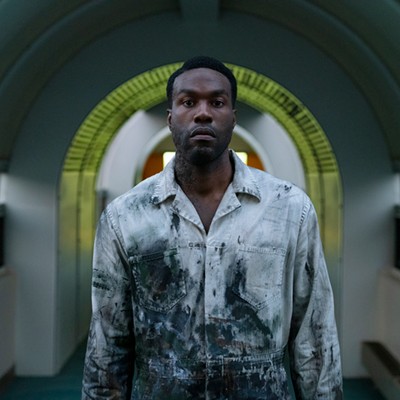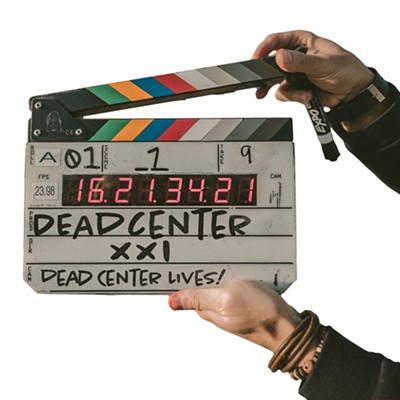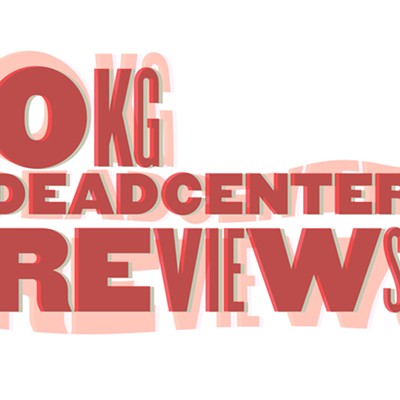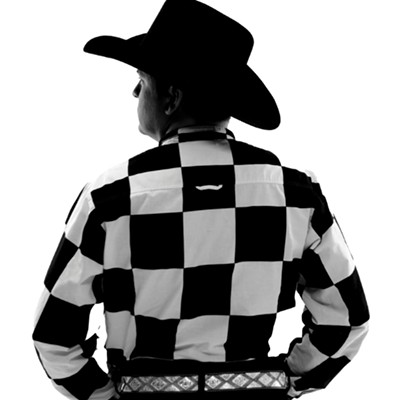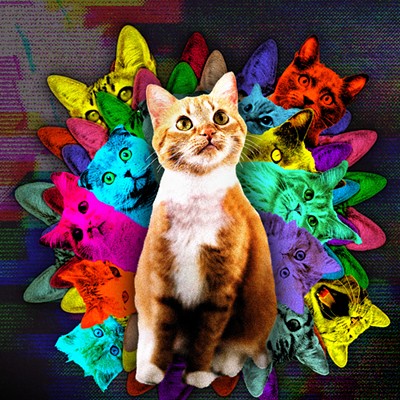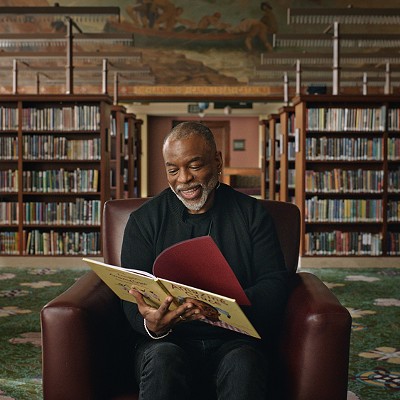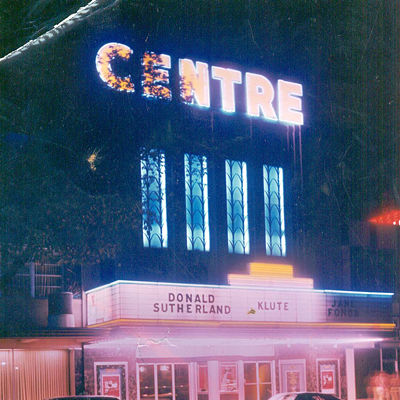deadCenter 2020: OKG talks with the creators of Shifter
[{
"name": "Air - Ad - Leaderboard - Inline",
"insertPoint": "1/2",
"component": "10513996",
"requiredCountToDisplay": "6",
"parentWrapperClass": ""
}]
Brittany Pickering: We're here talking with Jacob Burns and Zachary Burns about their film Shifter, which is in deadCenter Film Festival this year. Hi, guys. How are you?
Jacob Leighton Burns: Doing good. How are you doing?
Zachary Burns: Doing great!
Brittany Pickering: Good! Can you guys give a short description of the film so that people who don't know what it is or what it's about have a little idea of what we're talking about today?
Jacob Leighton Burns: Sure! So Shifter is a time travel horror film. It’s about a young woman who experiences these very painful and kind of gruesome side effects after an experiment with time travel goes wrong. So she, essentially kind of on her own, builds a time machine in her barn and she uses it on herself and then after that, things start to go wrong. She starts to shift at random, basically. So she could be at, you know, on her couch, she could be at the store, she could be anywhere and she would just randomly start shifting and she would shift into, basically time travel to another time. And she wouldn't know when either forwards or backwards, how far either way that would show up and it causes a lot of problems for her.
Brittany Pickering: I can imagine.
Zachary Burns: This movie sounds weird! I should check it out!
Jacob Leighton Burns: Yeah.
Brittany Pickering: Where did the idea come from? Like, how did it pop into your head? How did it come about, and how did you decide what the ways of shifting, like what that meant and how that would come out visually?
Jacob Leighton Burns: Yeah, for sure. So it kind of started out like I've always been a fan of time travel movies, and I've always thought it would be cool to make one, but I wanted to do something that kind of set us apart and didn't wanna just remake, you know, movies that I had already seen. And so I started thinking about a lot of the, like, tropes, that you see in time travel movies. You’ve got, like, fish out of water stories or you've got the more paradox, like it’s the movies like puzzle-type thing, and then you've also got movies where someone needs to go backwards in time or forwards in time trying to stop some major horrible tragedy from happening or something. And so we see those three kind of approaches to time travel over and over again in movies, and there's nothing wrong with that; they're great. But we just wanted to see if there's something else. And we just kind of realized, “Well, what's the horror of time travel? We haven't really seen that.”
And so I kind of brought that up with Zachary, and we ended up going to, spending like three hours at a Taco Bueno one night, talking about what a time travel horror movie could be. We just kind of started without putting those two genres together, basically. And through our conversations that night, we kind of came up with this idea that, “What if time travel is painful?” Just on a base level just considering what—
Zachary Burns: It had nothing to do with just eating Taco Bueno. I don’t want to besmirch the good name of Taco Bueno as our inspiration for Shifter.
Jacob Leighton Burns: Of course! Where was I? Oh yeah. So, your body's being, like, broken down and put back together and just, that sounds painful, sounds like it’d be awful. And so it just kind of expanded from there, and then from there, we went to, came up with the idea of, like, “Well, what if it was random? You don't have to be in a time machine? It just happens when it happens, and you can't stop it?” So that was kind of what we came up with that first night and then from there, we just kind of started thinking about, like, “Okay. Well, how does that, coming from that angle, how does that affect, like, a character in an affected person? What kind of character would be the best way to present all of this?" And that was kind of what led us down the path.
Brittany Pickering: So, when I first heard about this movie and read about it, I thought it was a sci-fi film.
Jacob Leighton Burns: Yeah.
Brittany Pickering: And it sort of is and it sort of isn’t. And I like that you guys are melding sci-fi and horror together. Does that, is that always, does that go throughout the film, or is it that, like, we’re time-travelling and that's the sci-fi and then it's just the horror of what has happened?
Jacob Leighton Burns: Yeah, so we kind of purposefully avoided a lot of the sci-fi tropes and a lot of things that you would see in these movies a lot. And, you know, even just the aesthetic of the movie; a large portion of the movie takes place on a farm, which is not, you know, what you typically see in a sci-fi movie, and we wanted to stay away from even the kind of the overall color of the movie and stuff like that. We kind of avoided blue and cooler colors and kind of stuck more with warmer tones and more earthy tones. And so, yeah, it technically, you know, just because it's time travel, it's technically sci-fi, but we didn't necessarily want you to be thinking; we just wanted to bring more that the characters and the forefront of the story and just kind of take it from a different angle than you'd normally see.
Brittany Pickering: Great! So, it's more character-driven than anything else.
Jacob Leighton Burns: Yeah, for sure.
Brittany Pickering: Are there other important characters that are present throughout the film, or is it mostly focusing on the one main character?
Jacob Leighton Burns: It is almost a one-man show following, Nicole Fancher was the lead actor playing the character, Teresa, and she is in almost every single scene. I think there's maybe two scenes that she's not in, which was a major—
Zachary Burns: Interesting.
Jacob Leighton Burns: Yeah, interesting challenge shooting, which Zach could talk about from a producing angle, but, yeah, there's definitely, there are definitely supporting characters that show up throughout. There's one character played by Ashley Mandanas, a character named Blake, who is kind of a really important character for Teresa and her relationships. But a big, big part of the story is that she's a very socially awkward person, and so she has a lot of struggles connecting with others, and that kind of played into, was kind of an extension of this whole metaphor of, you know, you're shifting through time at random; it's gonna be really hard to form relationships with people. And so that kind of played out in various aspects with all the other characters that she interacted with.
Brittany Pickering: Is it difficult? Did you film it in Oklahoma?
Jacob Leighton Burns: Yeah.
Brittany Pickering: Yeah, I thought you did, but I wanted to make sure. Is it difficult to, because a lot of the people in the industry who are making movies and working on set and actors and things, I know that they have other jobs and it's hard to find time sometimes to carve out to, you know, make a movie. Do you find it difficult to work in Oklahoma? Is it getting easier? How did that go?
Jacob Leighton Burns: It wasn’t too bad. Do you want to talk about that, Zachary, producer?
Zachary Burns: Yeah. You know, a thing that helped for sure was that we had the ability to pay people to be there, so that made it easier for them to take off time of their work to come hang out with us and make a little movie. But really in our years making movies here, we've never really had too many struggles of, you know, of anything being that, specifically, this is Oklahoma and people don't want people to make movies here. That has never really been an issue. Some people, you know, if you first approached them, like you want to use their location for the movie, sometimes they're a little initially wary of you, of like, “Who is this guy? And they want to do what at my place?” But kind of once they hear a little bit more about it and about us and what we want to do, generally people click into it and get kind of excited that, “Hey, a movie is gonna be shot at my place.” So that's kind of been our typical experience with making movies here, which has been great.
Brittany Pickering: How much does Oklahoma inspire the way that you film and maybe the stories that you want to tell in different films and in your work in general?
Jacob Leighton Burns: Yeah, that's a great question. I think one, just there's so many great people here and great crew and great cast and there's just a ton of talent, and not only are they talented, they're just fun to be around. And so that's always very exciting. We have a really good, very supportive and very engaged industry, so a lot of, basically, everybody wants everybody else to succeed. There's not as much competition as I think there are in maybe some other film markets and so that's always very exciting. Being on set is the most fun; you just get to hang out with a bunch of cool people for a couple weeks.
And then beyond that, like Zachary said, some people might be a little worried just because they just haven't been through the process of letting a movie film there or whatever, but once they kind of understand everything, there's a ton of excitement and they're very, you know, they might even end up being extras in the movie or stuff like that. And then Shifter in particular kind of takes more advantage of kind of the Oklahoma landscape. We made another movie called Electric Nostalgia, but Shifter kind of more prominently features Oklahoma and the farms and we get some good, you know, a lot of local businesses. We shot partly in Guthrie, some in Oklahoma City, a couple days or at least one day in El Reno. It's really a great look, like Oklahoma's great to film at just because there's just so many options. We've got like urban areas, we've got farmland, you know if you needed a desert, there's a desert. There's just all kinds, all kinds of things that you can utilize in the state and then plus just most importantly for me, just the people are really great.
Brittany Pickering: Yeah, I sort of got the impression that it was more, that the film is more like Black Mirror than like, you know, The Matrix or something. When you think of horror films, they’re set in one location, and it looks a specific way. Whereas Black Mirror kind of brings it into the real world sort of and these are the ways that we maybe go above ourselves a little bit and how that can go wrong.
Jacob Leighton Burns: Yeah.
Zachary Burns: Yes.
Jacob Leighton Burns: Yeah, that was a part of it. I really have been attracted to films and stories that really kind of put the characters first and maybe put the sci-fi and horror on slightly lower priorities. They’re still obviously important, but just, “How can this actual thing that’s happening to this character, how can we actually reflect that? Or how can it be an extension of what, like the character’s state of mind, or the things that she's going through in her life, and it can help us?” I think that's what's great about sci-fi and horror, is that it kind of can let us explore things from kind of different angles and maybe explore things that would be kind of difficult to do from a straightforward fashion. This movie kind of uses time travel as kind of a, kind of a metaphor for just various things like being isolated, grief, depression, anxiety. We kind of used it as kind of just like, “Here’s kind of a visual way to express some of those things that, you know, people deal with every day.
Brittany Pickering: Yeah, it seems very timely right now, with everything that's going on.
Jacob Leighton Burns: Yeah, there's a lot of anxiety.
Brittany Pickering: Yeah, a lot of aloneness and isolation.
Zachary Burns: Definitely.
Jacob Leighton Burns: Absolutely, yeah. We didn't … we made it before all that was happening. It's fascinating. You're not the first one that’s pointed out, like it kind of feels like a coronavirus movie and maybe put that together.
Brittany Pickering: Yeah, I find the main concept really interesting, like time travel would hurt because, you know, you're physically moving from one space to another space without walking away or driving there or—
Jacob Leighton Burns: Yeah.
Brittany Pickering: I'm a fan of Outlander.
Zachary Burns: Oh, nice.
Brittany Pickering: And when people time travel, it's like that, it's very chaotic and they’re lost in the darkness, kind of, and it's very painful and they feel like they're being ripped apart.
Zachary Burns: Oh yeah.
Brittany Pickering: When I watched the trailer for your film, the most fascinating part to me was when she had her hand on the window and then her hand started kind of, like, disappearing or disintegrating, but it looked painful, even though that's all you could see.
Jacob Leighton Burns: Yeah.
Brittany Pickering: I'm really excited to see your film. Is this the first festival that you’ve put it in, or?
Jacob Leighton Burns: No, we had our world premiere at Cinequest in San Jose. We got in just before—
Zachary Burns: Right before the world shut down.
Jacob Leighton Burns: Yeah, we were in San Jose the day they canceled South By Southwest. Actually, we premiered that day at Cinequest, and then they actually had to cut off part of the festival. It was supposed to be a two-week festival, and they had to cancel or postpone the second week of it, but we got our premiere in just in time. But yeah, that was in San Jose in March, I think March 5th or something.
Zachary Burns: The 5th of March, yeah.
Jacob Leighton Burns: Yeah, it was awesome. It was really cool, the first time we’d been to that festival and had a really great response as well.
Brittany Pickering: That's great. What is your next step for the film and maybe for your next film?
Jacob Leighton Burns: Yeah, sure. Next steps are we’ll hit up this festival and then there might be some other festivals. It's kinda everything's very up in the air right now. So that could be a possibility, and then we will have some news in the coming weeks that we can't really talk about yet as far as how people will be able to watch at home, so that'll be coming soon.
Zachary Burns: It’s very cryptic, but...
Jacob Leighton Burns: But it's great! Trust us!
Brittany Pickering: It goes with the theme, you know, the sci-fi horror theme.
Zachary Burns: Exactly!
Jacob Leighton Burns: Yeah, yeah!
Brittany Pickering: Surprise! But a good surprise.
Zachary Burns: Yeah, it’s great!
Brittany Pickering: Was there anything else you all would like to talk about about the film that maybe I didn't think of covering?
Jacob Leighton Burns: Is there anything from a producer side, Zachary?
Zachary Burns: I think you hit all the good stuff.
Jacob Leighton Burns: Cool.
Brittany Pickering: Good deal. Well, it was so nice talking to you guys today. I wish you luck, and I'm excited to see the reception of the film and how it all goes, and all of that.
Jacob Leighton Burns: Awesome!
Zachary Burns: Great! Yeah. Thank you so much for having us!
Visit deadcenterfilm.org.

